Dr. Aitziber López Elorza, representing CIDETEC Nanomedicine, presented the work “Skin-responsive smart nanocapsules for triggered release of active ingredients in damaged skin” at the 30th IFSCC CONGRESS held in Munich between 18 and 21 September. The congress, organised by the International Federation of Societies of Cosmetic Chemists, brings together more than 1500 delegates from all over the world for four days. The event, one of the most important in the field of cosmetic science, will feature more than 90 oral lectures and 400 posters, and will provide an opportunity to learn about new market trends and to build relationships with leading companies in the sector.
Six brand new material prototypes comprised of new, recycled and recyclable apparel and automotive materials and concepts will be showed in Eindhoven, from 20 to 28 October.
As we all know, one resource that’s becoming more abundant is waste. The idea of recycling textile waste has been popular for decades, but current mechanical methods give poor quality fabrics suitable only for industrial applications, like insulation, and the upcycling of pre-consumer textile waste into products is impossible to scale. Trash-2-Cash (T2C) proposes a new model where textile waste is regenerated chemically – resulting in new plastics and textiles that are the same quality as new materials, to make products that are industrially replicable and infinitely recyclable.
Trash-2-Cash is a consortium of designers, scientists and industry partners who have been working together to make new high-end materials from waste textiles. The consortium includes 18 partners from 10 countries that have been collaborating the last three years to produce these new materials from textile waste and have shared a new way of working – Design-Driven Material Innovation (DDMI) – outlining how science, design and industry can input into the process from beginning to end.
The resulting material prototypes developed during the project and the 6 Master Case ‘stories’ these new materials have been specifically developed for will be exhibited for the very first time during Dutch Design Week 2018, a key date in the design industry calendar.
CIDETEC Energy Storage will be the guest speaker at the 5th International Workshop on Lithium, Industrial Minerals and Energy (IWLiME 2018), which will be held in Santiago de Chile from 1 to 3 October 2018. The aim of this international workshop is to present the most recent activities in research and development in the region and around the world in relation to industrial and strategic minerals, with a particular focus on lithium and battery technologies. The workshop seeks to strengthen and build new national and international collaboration networks between industry and researchers from academic institutions, by promoting applied research from universities in the region and around the world. The event is sponsored by several key companies in the region such as Albemarle, which is dedicated to the extraction, processing and supply of materials for ion batteries, among other applications.
Oscar Miguel Crespo, director of CIDETEC Energy Storage, will speak on behalf of CIDETEC and present the latest R&D advances in lithium-ion batteries with his talk entitled “Research Trends in Lithium-Ion-Based Batteries”.
This invitation gives continuity to the visit made by the president of the workshop, Prof. Mario Grageda, director of the Center for Advanced Research in Lithium and Industrial Minerals (CELiMIN), belonging to the University of Antofagasta, to CIDETEC Energy Storage at the end of 2016, where he learned fist-hand about the centre’s activities, which are closely aligned with the theme of the event.
Last 4 September, the Pepticaps consortium met in Brussels before the European Commission for the final review of the project, slated to close at the start of October.
The Commission considers the project a success story since it has served to develop smart capsules for the cosmetic sector capable of responding to skin requirements.
The consortium, coordinated by CIDETEC, is composed of four other research centres – the University of Bordeaux, the University of the Basque Country, Claude Bernard Lyon I University and the Mario Negri Institute of Pharmacological Research – two companies, Polypeptide Therapeutic Solutions SL and AHAVA; and the consultancies, Spinverse and Angel Consulting.
The project started three years ago with the aim of developing the technology, and following this period, was validated and implemented in production at the pilot plant mounted by CIDETEC for the purpose.
The products obtained will be commercialised under the EMISSARY Brand through a new companyset up for the purpose that will bear the same name.
On 27-29 August, the final workshop and closing meeting of the SELECTA Project (“Smart ELECTrodeposited Alloys for environmentally sustainable applications: from advanced protective coatings to micro/nano-robotic platforms”) took place in Castelldefels (Barcelona). Apart from the scientific discussions and the project management meeting, workshop attendees had the chance to visit the installations of Sincrotrón ALBA, located in Cerdanyola del Vallès (Barcelona).
The SELECTA Project forms part of the Marie Sklodowska-Curie initiative, Innovative Training Networks (ITN), aimed at training a new generation of researchers through the agency of an international network of public and private centres. The research work carried out in this project has focused on the manufacture and characterisation of new protective coatings and wirelessly-activated micro/nano-electromechanical systems for sustainable environmental applications. The project (H2020-MSCA-ITN-2014 no. 642642) saw the participation of nine beneficiaries and six collaborating organisations belonging to 10 different countries of the European Union (in addition to Switzerland and Serbia). The complementary relationship between the different project partners, including university research groups, technological centres and private companies, has enabled the establishment of a high-level multidisciplinary educational programme.
During the workshop, research trainees (Early Stage Researchers, ESRs) presented the main results obtained during the project, enumerating the most significant indicators and milestones achieved in each case. Throughout the three years the project has lasted, different innovative coatings based on new alloys obtained by electrodeposition (Fe, Cu, Al and other non-toxic elements) have been developed with structures, morphology and geometries defined to meet different technological demands, such as a high resistance to wear and rust, higher magnetic properties and/or high impermeability.
CIDETEC took part in the SELECTA project as an associate, participating in ESR workshop training and the courses held throughout the project, and monitoring the different investigations undertaken. Two ESRs from the University of Vilnius (Lithuania) and Chalmers University (Sweden) underwent residencies in CIDETEC Surface Engineering in the context of the project, enabling the development and characterisation of composite electrodeposits based on alloyed FeW, with properties comparable to those of hard chrome, which can serve as an alternative for this coating in such high demand in strategic industrial sectors like aeronautics and the automotive industry.
The research carried out has facilitated the publication of 21 scientific articles in specialised journals as well as over 50 contributions to international conferences. Likewise, several articles are currently in progress that will lead to greater scientific dissemination of the work done during the project.









